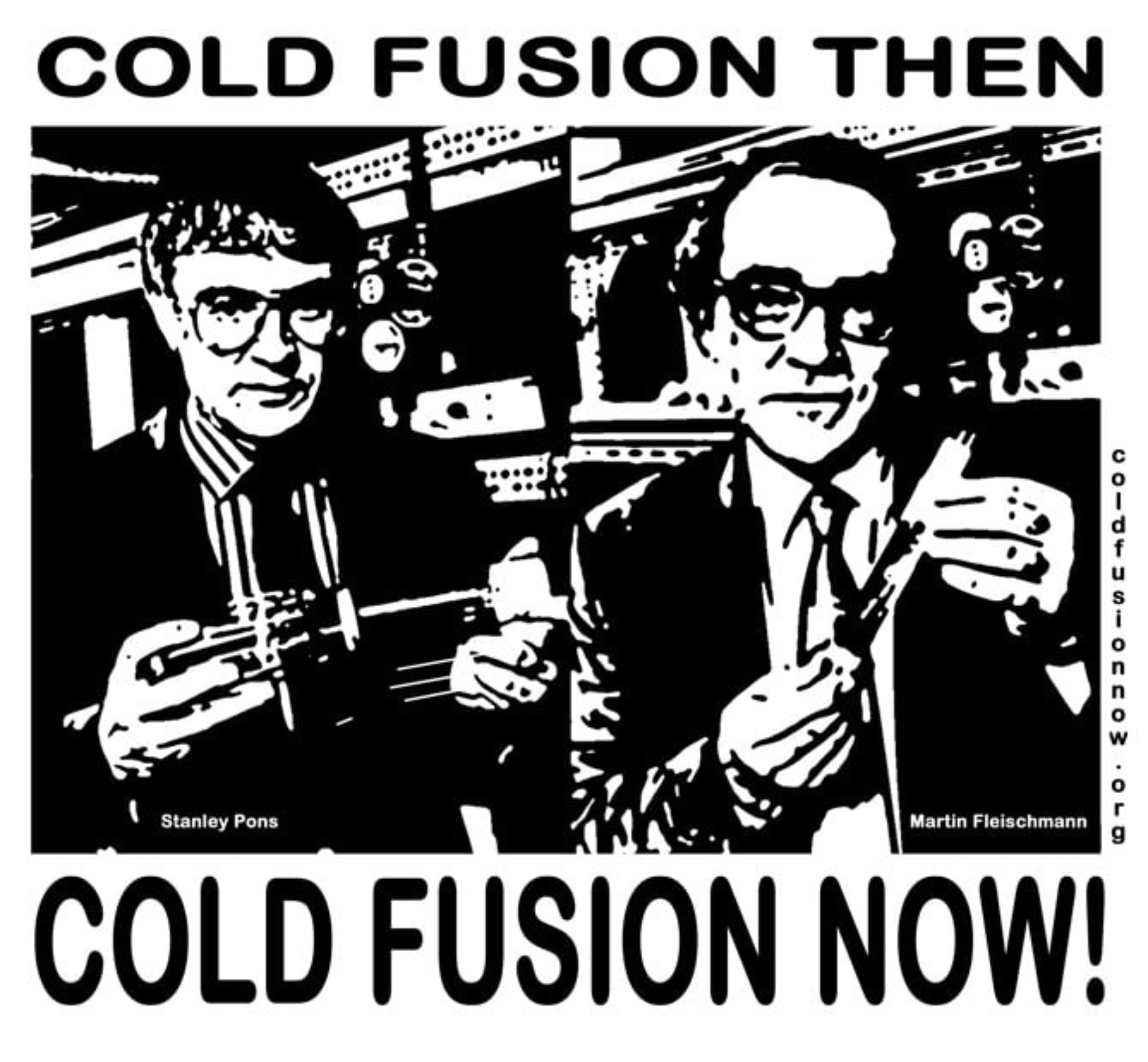Since there is a new movie coming out soon on the cold fusion scene called ‘the Believers,’ I thought I would talk a little about belief. This exposition does not necessarily have much to do with the movie, since I have neither seen nor heard anything about it. It does, however, have something to do with how one might look at the movie, giving tools for how one might look at belief.
I see there as being two different ways of looking at belief. “Belief that,” and “belief in“. These two different ways are not actually quite separate from each other, but we will start off with this distinction.
“Belief that” is propositional knowledge. One has (1) a believer, (2) a belief stated in the form of a proposition, and implied is (3) a warrant (or reason) for that belief. It is necessary that the belief is in the form of a proposition so that it might be expressed in the form of a claim or statement of fact. That proposition is either true or false, and hence the belief in its content is true or false. If that belief is false then the reason behind it must not be valid or, in other words, applicable. The belief is true in this limited sense of being a true proposition if it is an adequate idea, in other words, an idea that is “equal to” the thing that it is meant to match.
For example, I believe that 2+2=4, I have a reason for believing this because of the rules of mathematics. Any ordinary elementary school student could tell us that 2+2=4. It seems like a “no brainer.”
However, I could be wrong and 2+2 could equal 11, if we are dealing with a base 3 number system. Implicit in my initial judgement is the fact that we usually only deal with base 10 arithmetic. It is not wrong that 2+2=11 and it is not wrong that in a base 10 system, 2+2=4, it is just that model of a base 10 system which is implicit in our everyday calculations is not valid or applicable for the base 3 calculation of 2+2=11. Normally, however, most of our reasons for believing a propositional belief go unexplored, and normally that matches up quite well to the way the world works. If it looks like a duck, chances are, it is a duck.
“Belief in” is not about the truth or falsity of a propositional claim. The biggie of this kind of belief is the belief in God. Belief in God is not a propositional belief that God exists. One believes in God not because of the sum of the evidence, but because one reads the evidence in a certain particular way, from a certain perspective. It is a way of structuring everything else, or rather, everything else in a certain ‘realm.’ That particular perspective reinforces itself, whether it is belief in religion or in science, or belief in little Joey. A lot of “belief in” claims are vaguely defined and for good reason too. ‘So you believe in science?’ Which type of science? The basis for looking at the world from a perspective of Physics is quite different than the basis for looking at the world from a perspective of Chemistry or Biology. How much or how little does your belief in science rely on mathematics? The answer that one ‘believes in’ God or science, or little Joey is not the end of the questions, but rather often the beginning.
Philip K. Dick said that, “reality is that which, when you stop believing in it, doesn’t go away.” I am not a scientist, but to me there is enough evidence and testimony from various scientists to convince me that there is something persistent about cold fusion, something that “doesn’t go away” regardless of sceptics. This not due to societal delusion, the inquiry into cold fusion has been a sincere interest of too many scientists from different parts of the world, for too long of a time. It is not that there is cold fusion because people believe, but rather that we believe (or disbelief, it matters not the phenomenon) because there is a nascent phenomenon that, in our search to understand it, we call cold fusion.
I have suggested earlier that maybe cold fusion is a gift and maybe it is so. Maybe there is no “downside” to cold fusion once it is developed. A golden age is an attractive option, but I am more of the opinion that regardless of how good of a thing cold fusion will be, it cannot cure human nature. We cannot see the problems, but that doesn’t mean that they are not there (careful: double negative). Human nature will be that we will push things as far as they can go, and then a little further until they break. No matter how great cold fusion will be, I have quite a bit of confidence that mankind will find a way to muck it all up. That is not a reason to reject cold fusion (or anything else for that matter), mankind has that capacity with everything else as well.
btw ‘the gift’ is a topic of postmodernists like Derrida and Marion.
*************************************************************
Related Posts
cold fusion as a gift by John Francisco April 14, 2011
Persecution of (Early) Philosophers by John Francisco March 27, 2011
